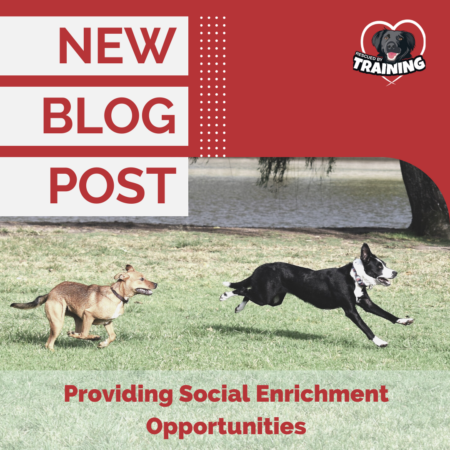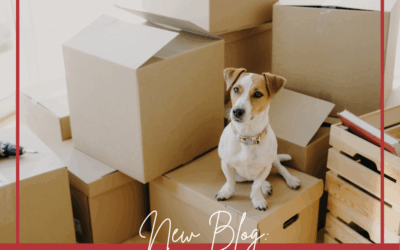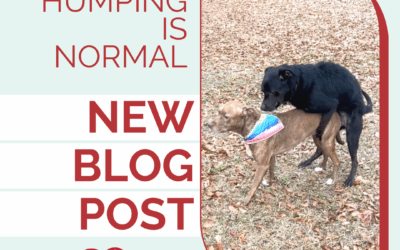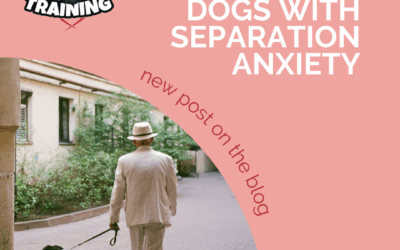I’ve written about the importance of enrichment how giving your dog outlets for normal dog behavior like sniffing is important and how enrichment isn’t optional. Often we overlook social interaction as part of our enrichment plan. Remember, dogs are social creatures so let’s not overlook giving them opportunities to be social with us (and members of their own species and sometimes other species!) as part of our enrichment for them.
Clients also think they have to do a lot of different enrichment things, or try to exhaust their dog through enrichment. While enrichment can be brain work (think, crossword puzzles for dogs) and can help tire your dog out, that’s not the goal of enrichment. Enrichment is so much more than just puzzles, and food toys. Enrichment is ensuring we are meeting all of a species needs including social interactions, nutrition, mental stimulation, species-specific behaviors, vet care, grooming and hygiene and more!
Social enrichment is “the practice of facilitating contact with dogs and other species, especially humans.” (Young, Environmental Enrichment For Captive Animals, 2003). Dogs are generally social creatures and can enjoy being social with humans, other dogs and often other species. (This is going to depend on and be determined by your individual dog.) Many dogs are people dogs and prefer the company of humans to other dogs, while other dogs are dog dogs and can’t get enough of their own species. Whatever your dog prefers, is fine and the social interaction opportunities we give our dog are what I mean when I talk about social enrichment. And sometimes there is crossover, like grooming is social, time spent with you and also ticks off physical enrichment/well-being. Enrichment activities don’t always fall into just one category.
And yes, even if your dog lives with housemates, they still need opportunities to socialize with other dogs. I find when people have two or more dogs they don’t feel compelled to provide other dog socialization opportunities. But this is like saying a human child has siblings so they don’t need other playdates or interactions with other children. If you have a dog-social dog, providing ample opportunities for interactions with other dogs is good for your dog and can reduce problem behaviors like leash reactivity from frustration.
Here are some social enrichment ideas:
- Snuggling
- Petting
- Grooming
- Visiting a new place
- Going to a pet friendly store, outdoor restaurant or brewery
- Playing with toys
- Training classes like agility, nosework or tricks
- Training basic skills
- Walks
- Doggy Daycare
- Dog Park
- Dog play dates
- Walks with other dogs
- Interactions with other species
Enrichment, social and other types, can also help fearful dogs build confidence by teaching them how to interact with their environment in a safe way. I love food toys and scatter feeding for enrichment opportunities but no dog should have to work for all their food, especially fearful dogs. We don’t want to force a dog to engage with us just because they’re hungry. It’s one of the reasons I don’t encourage hand feeding fearful dogs. And if you need a refresher on how to greet a dog (hint: it’s not sticking out your hand for them to sniff!), read it here.
There should always be some “free” food offered if the dog wants to “vote with their feet” and choose not to engage with us. This is the concept of “agency.” Having agency means, the animal (dog, human, whoever) has some level of control over the environment and has the ability to make choices, where there’s at least two choices that both result in a desirable outcome. So the choice of only getting food if the dog approaches a scary stranger isn’t agency. Getting food if the dog opts out and moves away from the stranger also needs to result in food, or something else equally reinforcing to the dog. Another example – nail trims. If the dog only gets a food reward for allowing a nail to be trimmed but doesn’t get anything when they opt out and ask for a pause, this isn’t agency.
While social enrichment is often overlooked, we do want to be careful that the dog is consenting to and having a benefit from the social interaction we’re offering. If you and your dog are struggling and need more one-on-one guidance, please schedule your session today! Be sure to sign up for my free weekly newsletter so you don’t miss out on free tips, videos, personal stories, client successes and more!
Happy training!
![]()




